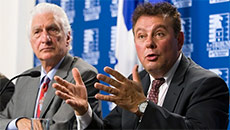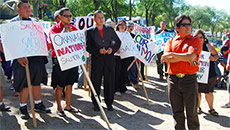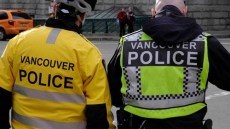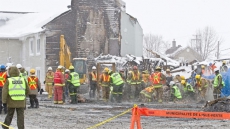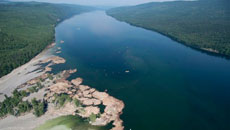OTTAWA - The Canadian military's almost decade-long quest to buy unmanned aerial vehicles has been partly hung up by an internal debate about whether the air forces needs one — or two — different fleets of drones.
A series of internal briefings, stretching back over two years, show that military planners were forced to go back to the drawing board in early 2013 after consultations determined what the country wants to accomplish with the remotely piloted planes might be too broad for just a single type of aircraft.
That has flummoxed the air force, which had drawn up its requirements and operational concepts based on a single fleet.
The military expects the drones to not only provide surveillance at home and abroad, but also carry weapons, such as Hellfire missiles, for precision strikes during overseas missions.
One briefing, prepared for former associate defence minister Kerry-Lynne Findlay in early 2013, says five of eight companies that responded to a request for information in the fall of 2012 proposed a mixed fleet.
The documents show the federal government was prepared to spend to up $3.4 billion to buy and service military drones over 20 years, but those numbers are being revisited because of the delay.
National Defence's new military acquisition guide shows the government doesn't plan to spend any money on UAVs until 2019-20.
With the political firestorm over the F-35 stealth fighter in mind, the Privy Council Office, the bureaucratic wing of Prime Minister Stephen Harper's office, told the military it wanted to see three viable, "fully costed options."
The documents, obtained by The Canadian Press under access-to-information legislation, also show that the air force has tried and failed six times since 2005 to acquire either a permanent fleet of drones or temporary capability.
It did succeed in getting a small fleet of Israeli-built Herons for operations in Kandahar, but that was only because the Manley commission, which examined the war in Afghanistan, made it a condition of Canada's continued involvement.
The leased aircraft were handed to the Australians following the end of Canada's Kandahar deployment in 2011.

Drones are becoming ubiquitous not only in many modern militaries, but commercially.
The fact National Defence hasn't been able to get its act together shouldn't be surprising given the budget restraints imposed on it, said University of Ottawa defence analyst Philippe Lagasse.
The air force's budget and expectations for replacement aircraft are often directed toward single fleets and having industry come back to say expectations don't match the technology must have thrown officials for a loop.
"Should it be going faster? Sure," said Lagasse. "Is it easy to do? No."
It is hard to move faster when National Defence has been saddled with so many competing projects and no overarching policy guidance, he added.
A rewrite of the government's defence strategy has been in a holding pattern before cabinet since late last fall.
The newly released documents underscore the importance of drone technology, describing it as a "critical enabler" without which surveillance of the country's vast expanses "will be less effective."
The absence of unmanned aerial vehicles is also being keenly felt as the military looks at other nations and sees what it could be doing — especially on the domestic front where it has been called upon to deal with the aftermath of floods and storms.
"Had a (UAV) capability existed it would have been utilized in most, if not all, recent natural disasters," said an April 2013 slide presentation drawn up by the project management office.

